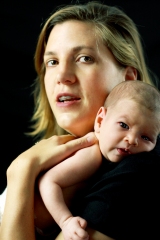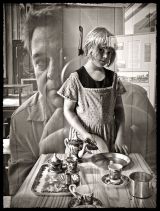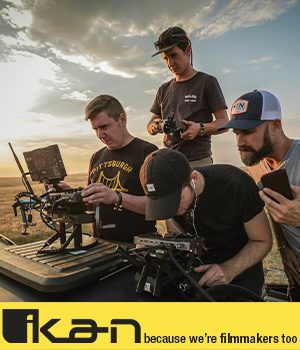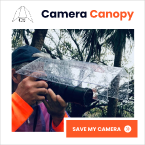- Forum
- General Discussion | Introductions | Off Topic Forum
- Photography General Discussion
- Starting my first workshop..Help.
Starting my first workshop..Help.
-
 Topic Author
Topic Author
- crystal
- Photo Guru
- Nikon D7000
- Followers: 101
- Posts: 3253
-
Points:
75
Post #222770
Turns out, people are calling the gallery looking for workshops for their children, so thats where I am heading first, to help kids.
Since I mainly shoot the outdoors, I know outdoor workshops should be done outdoors. However, I think the first workshop I'll have in the backroom more so to get my feet wet. And if anyone hates it, they can just leave and not kill me in the middle of the woods somewhere. lol
So, it's going to be a learn the basics workshop since I'll be working with kids, but not sure what to use as a subject to practice shooting. And how much do I charge? How long should the workshop be? Are parents suppose to stay or can they leave their children there?
The ages of the children is unknown. I'm thinking for the first one, ages 5-10. not sure yet, I guess that depends on who is interested.
So if anyone has done any workshops or taught classes, please give me any input.
-

- Shadowfixer1
- Photo Elder
-
- Olympus OMD E-M1 MKII
- Followers: 1350
- Posts: 5560
-
Points:
73865
Post #222774
-
 Topic Author
Topic Author
- crystal
- Photo Guru
- Nikon D7000
- Followers: 101
- Posts: 3253
-
Points:
75
Post #222782
I think this would be easier if I started off with maybe teenagers or adults.
There was already a lady who ask how young can children be for the workshops, because she has a 18month old she would like to get in a painting workshop.
-

- Cre8tivefix
- Photography Hooked
-
- Canon 40D
- Followers: 89
- Posts: 741
-
Points:
0
Post #222783
That age does very good with Hands on, so avoid presentations more than a few minutes long. You don't want to hand over a pricey DSLR to them. So maybe cardboard models of what aperture is. Show them how a lens works (flips the image, can project an image on the wall ect) using a magnifying glass. Cover the basics of exposure maybe by having a dark corner and a bright corner with a few objects to photograph in them if they can bring their own gear. And maybe go over the rule of 3rds which can be done on worksheets or anything else. Those are just what comes to mind first. The possibilities are endless.
-
 Topic Author
Topic Author
- crystal
- Photo Guru
- Nikon D7000
- Followers: 101
- Posts: 3253
-
Points:
75
Post #222787
Cre8tivefix wrote: Ages 5-10 parents should definitely stay, or it will be an exercise in chaos and herding cats. LOL Sounds Great though! If I lived in the area I could definitely see sending my 8 y/o to something like that.
That age does very good with Hands on, so avoid presentations more than a few minutes long. You don't want to hand over a pricey DSLR to them. So maybe cardboard models of what aperture is. Show them how a lens works (flips the image, can project an image on the wall ect) using a magnifying glass. Cover the basics of exposure maybe by having a dark corner and a bright corner with a few objects to photograph in them if they can bring their own gear. And maybe go over the rule of 3rds which can be done on worksheets or anything else. Those are just what comes to mind first. The possibilities are endless.Best of luck and let us know how it goes.
Thanks, I would like to do more hands on, as I know even with my self I am more a hands on type of person. lol
Ideally I would like this to be outside and I suppose I could do that, but the whole point of using the back room for workshops is to get people in to see our art and hopefully buy. The gallery opened in November, so people are still learning that we exist.
Post #223071
Post #223077
I agree that age range is probably not workable because what would work for K-1 wouldn't work for 10 year olds. Maybe in your area there are summer programs for kids thru art centers, summer day camps, etc. that would have their info. online and you could see how they divide age groups and what their classes involve. The younger the kids the more hands on it would need to be. Sometimes with my 2-3 yr. old groups we'd use Fisher Price cams, or I even took in disposables (kids manage to figure out how to push buttomes on a remote easily enough!).
For younger elem. kids I'd probably do sun prints, use older box cameras where they can open it up and see what's inside and look thru the lens and see the aperture change etc. For 'subjects' I'd gather up a box of fun bright objects that they can get creative with setting up what they want to photograph.Getting outdoors would be fun too if possible, or even having the kids bring in something they want to photograph. If you go with older kids, teens/adults then of course you could teach more about how to use their cameras.
I think it's going to take some planning, you'd need to know how many sessions and what you'd teach each class. Some places have instructors submit all that before they list a workshop. If you're doing this pretty much on your own and just using the center's space, you might need to look into insurance etc. so you're covered if anything happens. And w/kids you'd have to think about supervision, parent permission, restroom breaks, drinks/snacks? (the younger they are, the more you have to consider that type thing!).
Maybe there would be someplace locally that has a class going that you could observe to get some idea what it would be like teaching a class, whether for kids or adults. Maybe you could do a workshop that meets once or twice just for some basics and see how that goes before you get into a longer class.
Sharon
-
 Topic Author
Topic Author
- crystal
- Photo Guru
- Nikon D7000
- Followers: 101
- Posts: 3253
-
Points:
75
Post #223311
-

- Henry Peach
- Apprentice
-
- I currently use a 5DII or Sony Nex-3 most of the time.
- Followers: 50
- Posts: 2925
-
Points:
16
Post #223318
For kids I'd make the parents stay, and keep the workshop short (2 hours, no more than 3). Without the parents you are 10% instructor, 90% daycare. Also you'll need to figure out every different point-n-shoot they've got. Hopefully the parents will know their own cameras. I would very quickly cover the basic ideas of the meter, aperture, shutter, and ISO, but not dwell too long on them or go into it too much. Visual examples (slides, Power Point, prints... ) would be good and fast. Then connect those concepts to icon modes: portrait=shallow DOF, landscape=deep DOF, sports=fast shutter, etc... After that I'd mostly cover basic composition (rule of thirds, framing, simple vs cluttered), color, and the different sorts of ways photography can be used to convey ideas. Emphasize the fun of photography. Then go to the local park and shoot for a while, and discuss the pics with the kids. It would be cool if you could look at them on a laptop or tablet instead of the back of the cameras, but that might require an assistant (and a card reader). A slideshow of several pics from each participant would be neat. It could be put online for viewing after the class.
For adults I'd take them to someplace that you like to shoot (but don't mind sharing), and run them through how you go about creating your landscape photographs. The workshop can be a lot longer. At some point they get to wander off and shoot, and again you discuss the photos with them. Answer technical questions as they come up.
- Forum
- General Discussion | Introductions | Off Topic Forum
- Photography General Discussion
- Starting my first workshop..Help.
Latest Reviews
The Olympus Pen E-P7 is an affordable micro four thirds mirrorless camera with 4K video capabilities, a 20.3MP sensor, and 121 focus points, making it a solid entry-level camera for beginners.
The Panasonic G9 II is a 25.2-megapixel micro four thirds camera with numerous features that make it punch out of its weight class, like 779 AF points, 5.8K video, and weather sealing.
The Fujifilm XT5 is a 40MP mirrorless camera capable of 6.2K video at 30p. With those specs, it’s an ideal choice for photographers needing a camera to pull double duty for imaging and video.
The Canon EOS R100 is an entry-level mirrorless camera introduced in 2023. But just because it’s an entry-level camera doesn’t mean it’s a bare-bones camera. Find out why in this review!
Forum Top Posters
-
1Scotty 9 posts
-
2Roman Omell 4 posts
-
3Razky 4 posts
-
4Pat White 3 posts
-
5CharleyL 3 posts
-
6ShutterPal 3 posts
-
7Ruby Grace 3 posts
-
8Roger Lang 3 posts
-
9Nefarious 3 posts
-
10Jim Photo 3 posts
Latest Articles
Upgrade your kit in 2024 with the best intermediate camera on the market! The question is, what camera fits the bill? We’ve got three top options for you to choose from in this buyer’s guide.
The best photography jobs right now are a mix of tried-and-true gigs like wedding photography and new jobs highlighting AI’s capabilities, travel, and videography.
The Olympus Pen E-P7 is an affordable micro four thirds mirrorless camera with 4K video capabilities, a 20.3MP sensor, and 121 focus points, making it a solid entry-level camera for beginners.
Starting a photography business is one thing; sustaining your business over a long period of time is another. Use the tips in this professional photography guide to build something with longevity!
The Panasonic G9 II is a 25.2-megapixel micro four thirds camera with numerous features that make it punch out of its weight class, like 779 AF points, 5.8K video, and weather sealing.
Cinematic photography is an interesting genre that combines photographic and videographic skills along with effective storytelling techniques. The result? Highly impactful images!
Newborn photography requires skill, the right gear, and a lot of patience. This beginner’s guide discusses critical topics that will help you be more prepared for before, during, and after the shoot.
To fill the frame means to expand the footprint of the subject in your shot. Get in close, zoom in, crop the image, or use other techniques to bring the subject to the forefront.















